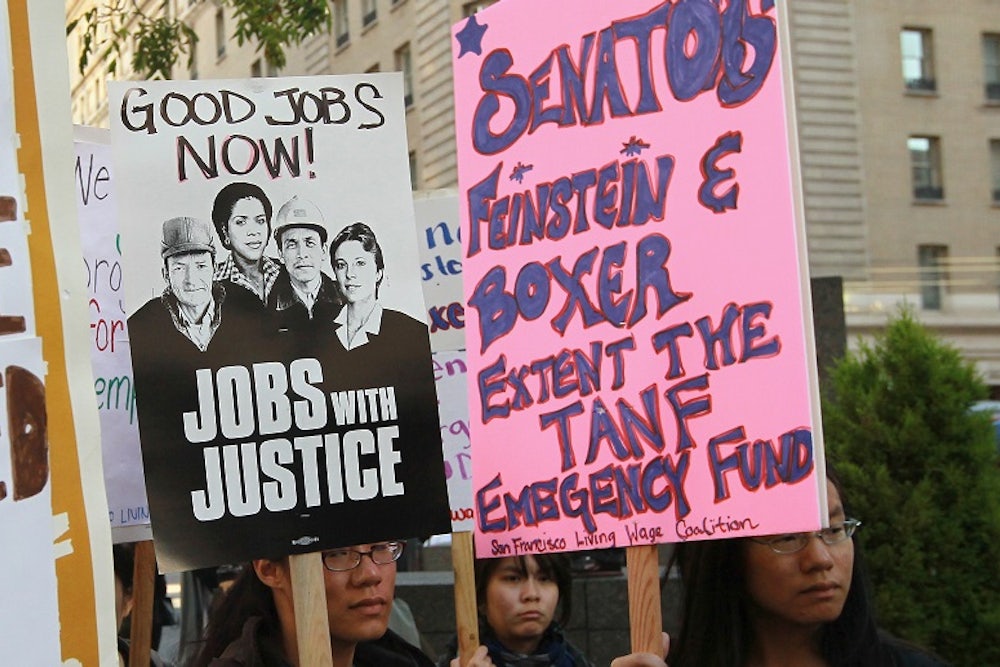In the New York Times Friday, Binyamin Appelbaum published a deep, reported look at the declining labor-force participation of male workers in the United States. Economists have worried about this trend for years, hopeful that an improving economy would bring more male workers back into the labor force. As Appelbaum documents, though, there are deeper forces at work—the decline of marriage and greater availability of disability benefits, for instance.
Yet, the economy is still a major reason for the reduced employment rate among prime-age male workers. One line from Appelbaum’s piece indicates this in particular:
[Frank Walsh] drew unemployment benefits for another year before finding warehouse jobs loading groceries for the Peapod delivery service. This time he was fired on Dec. 13 — like many who have list jobs, he remembers the date immediately and precisely —after he asked for a vacation day, he said, to care for his dying mother.
There are two important points to make here. The first is that the United States is the only OECD country that does not require employers to offer paid vacation time:

But more important is what Walsh’s firing says about the state of the economy: Workers have no leverage over their employers. Even though the recovery has made substantial progress this year, there are still many more unemployed workers than jobs available. When that’s the case, workers don’t have leverage to demand higher wages and better working conditions—or a day off to care for one’s dying mother. If they make such demands, employers can find a replacement worker from the unemployed. That seems to be what happened with Frank Walsh.
The good news is that Walsh was fired in 2012 or 2013 (it’s not entirely clear from Appelbaum’s story). The economy really has improved a lot since then. Wage growth in November even picked up a bit, though annual wage growth is still stuck around 2 percent. But until wage growth accelerates further, the Frank Walshes of the world will continue to have no leverage over their employer—forced to choose between caring for a dying mother or their job.
